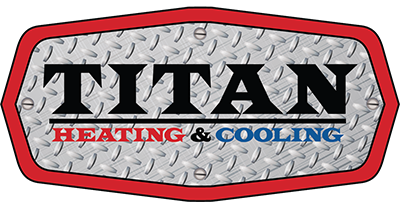When we consider the quality of the air we breathe, we tend to think of outdoor air pollution, but we don’t often think about pollution in the air inside our homes. But in many cases, indoor air can be just as polluted, if not more so, than the air outside. Poor indoor air quality can cause or contribute to an array of health problems - some minor, others much more serious. Let’s take a look at how the air you breathe could be impacting your health. What Causes Poor Indoor Air Quality? Many things can cause the air in your home to become polluted: Dust Mold Mildew Smoke from cigarettes or cooking Fumes from carpet and furniture Bacteria or viruses Pet dander Cleaning products Air fresheners and more can all diminish the quality of the air you breathe. All of your day-to-day activities ultimately contribute in one way or another to the air quality in your home. Additionally, improper ventilation and high humidity can increase the concentration of pollutants in the air, further contributing to the problem. Health Effects Associated With Poor Air Quality The effects of exposure to poor indoor air quality vary depending on many factors, including the type and concentration of pollution in the air, the sensitivity level of each person, and the length of exposure to the pollutant. If you have symptoms at home but they diminish or disappear when you leave, it’s possible you are experiencing the effects of poor air quality. Some of the health effects that polluted indoor air contributes to are: Immediate effects: Irritation of the eyes, nose, throat, or skin Headaches Dizziness Fatigue Shortness of breath or mild asthma Long-Term Effects: Respiratory disease Rapid heartbeat or heart disease Nausea or vomiting Worsening asthma symptoms Lung cancer These long-term effects can happen in cases where you are exposed to particularly harmful pollutants (such as radon or ozone) or to a high concentration of less harmful pollutants for an extended period of time, and you may not notice more severe symptoms for many years. Also, some people are more sensitive to pollutants than others, so all family members may not experience the same symptoms. How to Improve Indoor Air Quality There are a number of ways to improve the quality of the air in your home, ranging from simple things you can try on your own to bigger changes that require help from a professional. Opening up the windows for ventilation, opting for cleaning and personal care products that produce less toxic fumes, running a dehumidifier on humid days, changing your air filter regularly, and having your HVAC system professionally cleaned can significantly improve your indoor air quality. For an even greater improvement in your home’s air quality, consider installing a whole-house ventilation system or adding an air purifier to an existing system. Product Spotlight: BreatheCLEAN Air Purifier Here at Titan we recommend the BreatheCLEAN Total Home Air Purifier for the ultimate in indoor air purification. BreatheCLEAN uses the power of pure ultraviolet light to kill airborne microorganisms such as germs, bacteria and mold. It easily installs into the existing ductwork of your home’s central ventilation system and continually cleans the air as it circulates. No competing model offers more effective purification for your home, and the BreatheCLEAN system costs less than you’d think. If you’re ready to improve the quality of your indoor air with an air purifier, upgraded air filter, new dehumidifier, or professional HVAC cleaning, Titan Heating & Cooling has what you need. Give us a call at 651.714.8931 or contact us here. ...
Read MoreWhen the hottest days of summer hit, the following tips will help your AC run more efficiently, keeping you cooler and your electric bills lower. Check Your Air Filter Regularly replacing your air filter is one of the easiest and most effective ways to keep your AC unit running efficiently. Get in the habit of checking your air filter once a month and replacing it as needed. Give Your AC Unit Some Shade and Space Creating shade around your AC unit by planting shrubs or trees nearby can also help keep it cool, but be careful not to get them too close. Keep plants and other landscaping at least 2-4 feet away from the unit to ensure adequate airflow and allow access for regular maintenance. Close Shades During the Day Close shades, curtains, and blinds during the hottest parts of the day to help keep out some of the heat of direct sunlight. Then open them up again at night to allow built up heat to escape. Run Ceiling Fans Counterclockwise If you have ceiling fans, run them counterclockwise in the summer to help push cool air down. Your AC unit won’t have to work as hard, and your room will feel up to 8 degrees cooler! (In the winter, you’ll want to switch your fan to rotate clockwise so it pulls cool air up and pushes warm air down.) Check Your Thermostat Increasing your thermostat by a few degrees can give your AC a break as well. Setting it at around 78 degrees will give you the best energy savings, but we know that isn’t comfortable for everyone. Increasing the temperature even a degree or two can make a big difference. In addition, keep lamps and other heat-producing appliances away from your thermostat, as the extra heat will tell it to run the AC more than it needs to. For the same reason, try to keep direct sunlight off of your thermostat as well. Use a Dehumidifier Here in Minnesota we know all too well that high humidity can make hot summer days feel miserable. Running a dehumidifier will make your home feel much more comfortable without overtaxing your AC unit, even on the hottest of days. Seal Up Leaks Some basic weatherization steps can prevent the loss of that cool air your AC unit is working so hard to create. Seal air leaks around windows and doors with caulking or weatherstripping and make sure air ducts are properly sealed and insulated as well. Call In the Pros Routine maintenance of your HVAC system will keep it running at peak performance and efficiency. We recommend having your system checked out at least once a year to keep it in tip top shape. Time for a Replacement? If your AC unit is no longer able to keep up with your cooling needs, it may be time for a replacement. While a new unit can be an investment, newer models are more energy-efficient and will save you money in the long run. When it’s time to maintain, repair, or replace your AC unit, Titan Heating & Cooling has everything you need. Give us a call at 651.714.8931 or contact us here. ...
Read More



